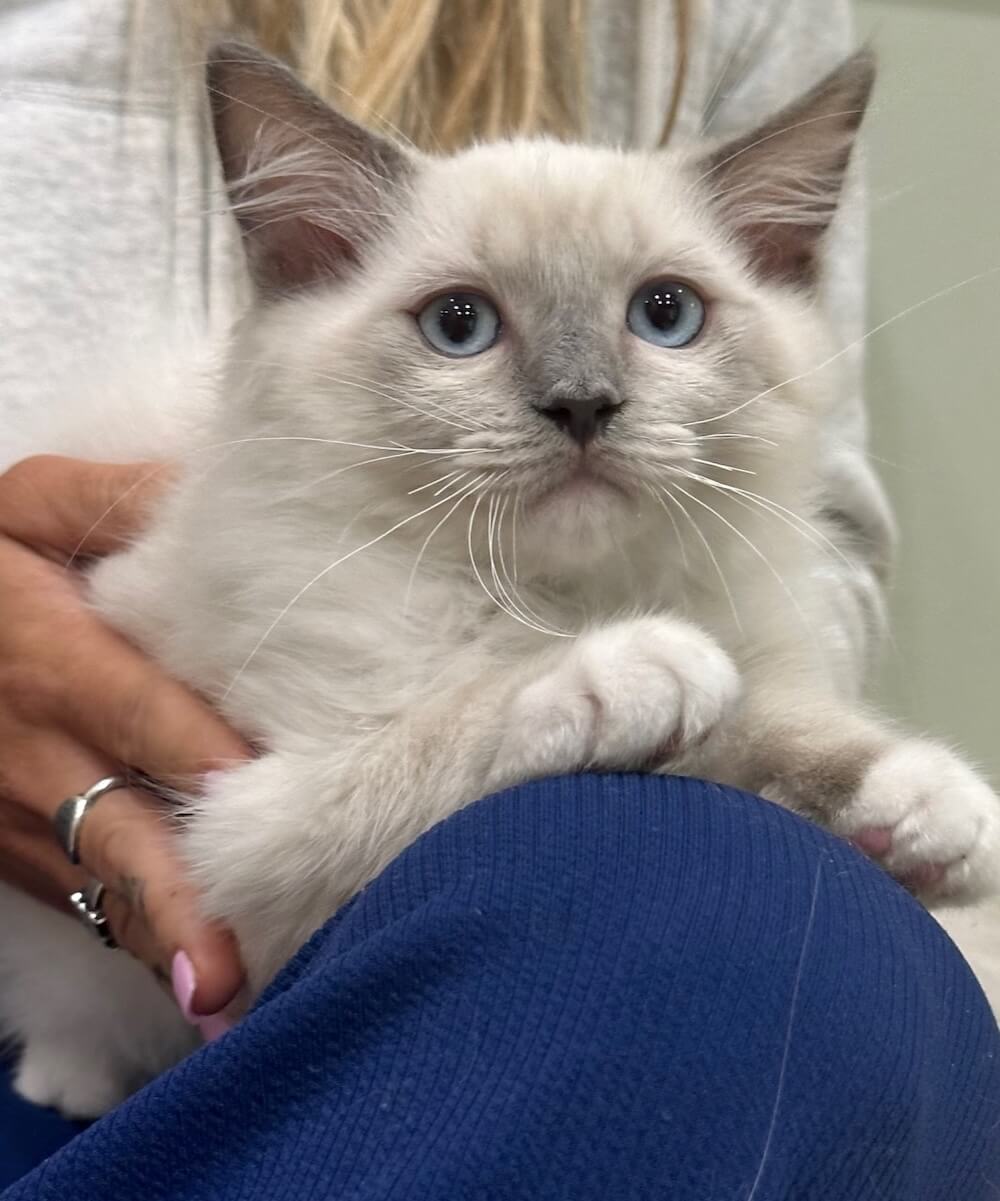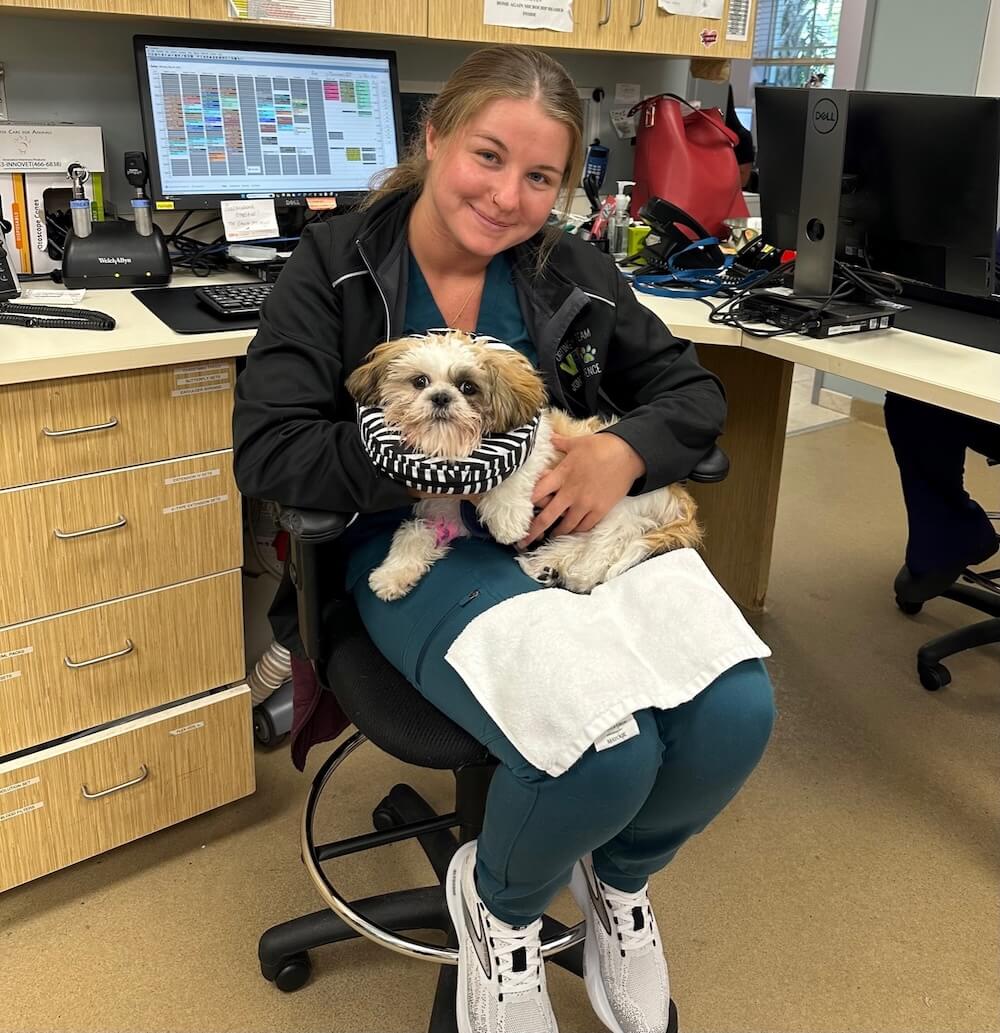Calusa Veterinary Center in Boca Raton, FL, is proud to offer expert, comprehensive puppy and kitten care services. Our experienced veterinary team understands the importance of maintaining excellent health for your new furry family member from day one.
Welcoming A New Puppy Or Kitten Into Your Home

Bringing home a new puppy or kitten is an exciting time, but it's crucial to take the proper steps to ensure their health from the start. There is a range of necessary procedures and preventative care measures that new pet owners should follow. By taking these important steps right away, you can give your new furry family member the best possible start to a healthy, happy life.
First Vet Visit
The first veterinary visit for your new puppy or kitten is extremely important in establishing a strong foundation for their lifelong health and well-being. This initial appointment allows your veterinarian to give your pet a comprehensive physical examination and check for potential congenital issues or other health concerns. It's critical to address these problems early on before they possibly worsen. The first vet visit is also when your pet will likely receive their initial vaccinations to protect them from dangerous yet preventable diseases. Your veterinarian will provide you with an appropriate vaccination schedule based on your pet's age.
The first visit allows you to have an open discussion with your vet about all aspects of caring for your new puppy or kitten. Your veterinarian can offer professional guidance on proper nutrition, exercise, behavior training, grooming, and general best practices for integrating the new pet into your home successfully. This appointment lays the groundwork for developing that essential partnership between you and your veterinarian to optimize your furry friend's health for years to come.
Vaccinations

Vaccinations are absolutely essential for protecting your new puppy or kitten against a number of potentially deadly diseases. Puppies and kittens are especially vulnerable due to their immature immune systems, so keeping them up-to-date on vaccinations is crucial. During your pet's first visit with us at Calusa Veterinary Center, our veterinarians will carefully evaluate their health and provide you with a detailed, age-appropriate vaccination schedule. Properly adhering to this schedule ensures your furry friend receives maximum protection against deadly ailments like parvovirus, distemper, and rabies.
Regular Check-Ups
Regular veterinary check-ups are vital for monitoring your puppy or kitten's growth and development, as well as catching any potential health issues early before they become bigger problems. Puppies and kittens grow at an astounding rate during their first year, so frequent examinations allow your veterinarian to ensure they are hitting all their developmental milestones and adjust care as needed.
Routine check-ups also allow your vet to stay on top of your pet's changing nutritional needs, administer vaccines on the proper schedule, and assess their behavior to provide training guidance. For this reason, it is recommended that puppies and kittens receive check-ups every 3-4 weeks until 16 weeks old, then every 1-3 months until their first birthday, and at least annually throughout their life. These regular visits are a cornerstone of providing your four-legged family member with a lifetime of excellent preventative care.
Spaying and Neutering
Spaying (female pets) and neutering (male pets) provide numerous important health and behavioral benefits for dogs and cats. From a medical standpoint, these procedures eliminate the risk of testicular cancer in males and greatly reduce the chance of other reproductive cancers like mammary carcinoma and life-threatening uterine infection in females. Spaying a female pet before their first heat cycle can also dramatically decrease their odds of developing mammary cancer later in life. Additionally, neutering makes male pets far less likely to mark territory, roam, or display aggression related to mating behaviors.
For these compelling reasons, Calusa Veterinary Center strongly recommends having your puppy or kitten spayed/neutered around the appropriate age based on the breed and lifestyle of your pet. Consult with your veterinarian to see when your pet should get this procedure, as the timeline can vary. Proper timing allows your pet to reach an appropriate level of physical maturity while still reaping the benefits of the procedure. Spaying and neutering are routine surgeries that our experienced veterinarians perform frequently using comprehensive pain management protocols to ensure your companion's comfort and safety.
Nutrition
Proper nutrition is crucial for your pet's overall wellness. Our veterinarians will recommend a high-quality diet specifically formulated for your puppy or kitten's age and breed. It is important to follow their recommendations and avoid giving your pet table scraps or human food, as this can lead to health issues and obesity.
Flea/Tick Control
Puppies and kittens can easily become infested with fleas and ticks, which can cause skin irritation, allergic reactions, and anemia and carry a wide variety of infectious and zoonotic diseases. Various effective flea and tick control products are available, so talk to your veterinarian about which one is right for your pet.
Heartworm and Intestinal Parasite Prevention
Heartworm disease is prevalent in South Florida, but thankfully, it's a condition that is easily preventable. Our team provides heartworm education, prevention, and treatment to ensure your new pet remains happy and healthy!
We also routinely check for intestinal parasites in your puppy or kitten, to ensure your pet is parasite-free.
Exercise
Proper exercise is essential for puppies and kittens to support their healthy growth and development. However, it's important not to over-exercise young pets whose bones and joints are still forming. For puppies, short, gentle play sessions and walks are recommended several times daily, limiting strenuous activity. Kittens need opportunities to run, jump, climb, and play frequently to burn energy, but these sessions should be kept brief at first.
As a general guideline, puppies and kittens should get 5 minutes of exercise per month of age, two to three times per day, until reaching full maturity around 12-18 months old. Providing appropriate exercise outlets allows young pets to strengthen muscles, burn calories, and exhibit natural behaviors in a controlled, safe manner.
It is important to be mindful of the outside temperature in warmer states like Florida. When exercising your pet outside in extensive heat, your pet is more at-risk for heat stroke and over-exertion.
Dental Care
Dental care is often overlooked when it comes to pet wellness, but it is an important aspect of their overall health. We can provide you with tips for maintaining your pet's dental hygiene, such as brushing their teeth regularly and providing them with dental chews. Regular dental cleanings are also recommended to prevent dental disease and other health issues.
Microchipping
Microchipping is a simple and permanent form of pet identification. It's quick, easy, and painless, and it could be the key to finding your lost pet.
A microchip is a tiny computer chip (about the size of a grain of rice) that is implanted under the skin of your pet. The chip contains a unique ID number that a special scanner can read. If your pet is lost, any veterinarian or animal shelter can scan the microchip and contact you to return your pet home safely.
Microchipping is quick, easy, and relatively painless. The microchip is injected under the skin with a needle, similar to a routine vaccine injection. There is no need for anesthesia or sedation. The microchip itself does not require any maintenance or care. It will remain safely under your pet's skin for their entire life.
Multi-Cat Households
Having multiple cats in one household requires some extra precautions when introducing a new kitten to the home. It's important to keep the new kitten separated from your other cats initially to allow for a slow, controlled introduction and give the kitten time to adjust in a safe, stress-free space. During this transition period, the kitten should have its own litter box, food, water, bedding, and toys kept apart from the other cats.
Once the kitten has received its first round of vaccinations, you can start supervised introductions, keeping sessions brief and positive. Swapping scents on bedding can also help the cats get acquainted with each other's smells. With time and patience, the cats will learn to coexist peacefully, but it's critical to take these precautions to prevent illness or excessive stress. Keeping all cats up-to-date on vaccines and deworming is also key for a multi-cat household.
Join the Calusa Veterinary Center Family Today!
Welcoming a new puppy or kitten into your family is an exciting and joyful time! But it's also a big responsibility to ensure your furry friend gets off to the best possible start. At Calusa Veterinary Center, our team is passionate about providing comprehensive care tailored to the unique needs of puppies and kittens. Give your newest family member the healthy foundation they deserve - schedule their first visit today!
